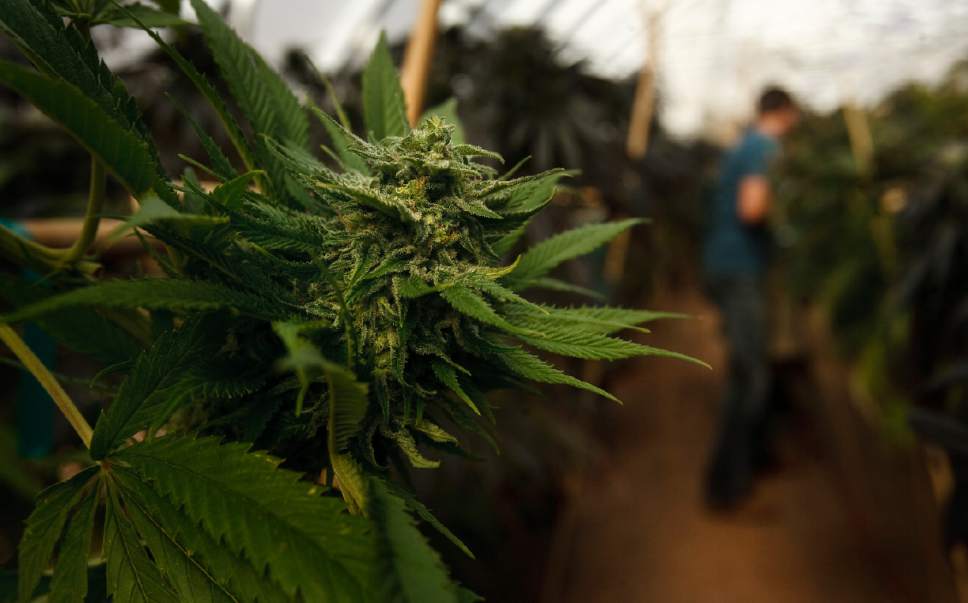This is an archived article that was published on sltrib.com in 2017, and information in the article may be outdated. It is provided only for personal research purposes and may not be reprinted.
A bill opening the door to research of medical marijuana cleared its first Senate vote on Wednesday with near-unanimous approval.
Senators voted 27-1 for HB130, which permits the study of cannabinoid products for medical use and creates a review board to consider potential recommendations for future marijuana policy.
"It does not dictate any kind of a policy as to what is legal and what is not," said bill sponsor Sen. Evan Vickers, R-Cedar City. "It simply starts that process of allowing additional research to be done."
But after multiple attempts to legalize medical marijuana use in the state, Sen. Jim Dabakis, D-Salt Lake City, said that his constituents view HB130 as a "Trojan horse."
The medical application of marijuana has already been studied extensively, Dabakis said, but with HB130 lawmakers are attempting to give the appearance of action to Utahns with chronic pain and terminal illnesses.
"This is simply a delay tactic for them," said Dabakis, who cast the sole vote against HB130. "These are people that are suffering right now."
Instead of a delay, Vickers said the bill is meant to be prudent. He said there are many unknowns regarding medical marijuana, including how a new administration in the White House will treat the drug, which remains illegal under federal law.
"We don't know what their approach is going to be on this," Vickers said.
And Sen. Jacob Anderegg, R-Lehi, said research is needed to establish safe dosage and application standards for medical cannabinoids. Unlike opioids, for which doctors know what quantities to prescribe to avoid liver damage and kidney failure, the limits and best practices for medical marijuana have not yet been established.
"Anything beyond what this bill does ends up making it so each doctor is becoming their own research laboratories," Anderegg said.
The bill was tabled with final action pending near-the-end-of-session decisions about spending priorities. The bill, which earlier passed the House 70-2, has an estimated price tag of $20,000.
Twitter: @bjaminwood



